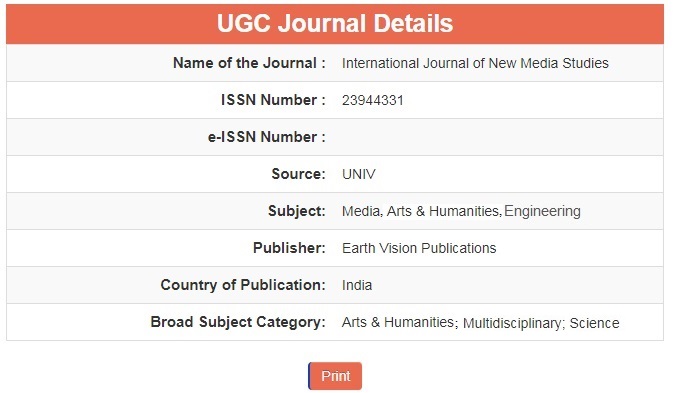Plagiarism Policy
Peer Review and Plagiarism Policy
IJNMS follows Double Blind review:
- We scan the submitted papers if they are according to the journal instructions.
- The papers which pass the journal instructions are checked for plagiarism and the paper passes if it obtains a score less than 20%.
- We assign the passed papers to the concerned branch editor to check the paper if it deserves the peer review process or not.
- If the paper is accepted by the branch editor for review, he suggests a list of five reviewers for possible peer review.
- We send the abstract to the reviewer and ask him if he is able to make peer review for the paper. We offer him seven days to respond.
- If the reviewer accepts to review the paper, we offer him 30 days to submit his review report to the journal.
- The branch editor examines the review results based on two reports and either he rejects the paper, accepts the paper or ask for revisions from the author.
- The accepted papers are edited and sent to the press to make the first draft of the issue.
- The draft of each paper is sent to the author for proofreading before the final print.
MALPRACTICE STATEMENT
Academic misconduct in any form will not be tolerated by “International Journal of New Media Studies”. In cases of suspected misconduct (plagiarism, fraud, breached intellectual property rights, etc.) a panel will be formed to evaluate the substance of the claim. If the claim is supported by evidence, the paper in question will be rejected and all authors and their affiliations will be informed. In cases where the paper has already been published before the misconduct was discovered, the paper will be withdrawn from IJNMS archive and an announcement of this act will be posted in the first issue published following the case. Cases of misconduct may result in a three-year or longer ban from future submission to “International Journal of New Media Studies”. The author(s) might be blacklisted.






